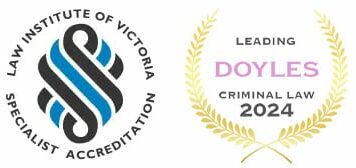Under the Crimes Act 1958, an ‘indictable offence’ covers a range of offences, including:
- theft
- drug offences
- armed robbery
- murder
- rape
Generally, if you are charged with an indictable offence, the matter will commence in the Magistrates Court. But some indictable offences may only be heard by a Judge as a Plea hearing or a Trial in the County or Supreme Courts.
What Happens if I Want to Plead Not Guilty?
The decision to plead guilty is up to you, however, you should seek legal advice from your lawyer before making this decision. When entering a plea of not guilty you have the option to have your case heard and determined in either the Magistrate’s Court or at trial in a higher jurisdiction. This is an important decision to discuss with your lawyer. Your lawyer will provide you with advice about whether it is in your interest to have the case heard summarily (in the Magistrates Court) or proceed to trial (in the County Court).
Indictable Offences Heard Summarily
Indictable offences may be heard summarily if they meet certain legislative requirements. If eligible, you may choose to have your indictable offence heard summarily in the Magistrates Court. There, it will be dealt with either as a Plea of Guilty or proceed to a Contested Hearing.
Advantages to having indictable offences heard summarily can include:
- the cost of your representation
- the speed of resolution and, in many cases;
- the likely lesser penalty in the event of a conviction.
If you elect to proceed with your case in the Magistrates Court as a contested hearing (pleading not guilty), then the Magistrate must determine what is admissible in the police case as evidence of guilt and whether on the facts you are guilty “beyond reasonable doubt”. Some cases may require the Magistrate to rule certain evidence as inadmissible in the police prosecution case. The Magistrate must then put the inadmissible evidence out of mind and determine your case on the evidence before them that is admissible.
Proceeding to Trial
In some cases, it may be to your advantage to refuse summary jurisdiction and proceed to trial. Your lawyer will be able to advise on whether the issues in your case justify taking the case to a higher court. If you elect to have the charges determined by a Judge and Jury, the case will be placed in the Indictable stream of the Magistrates Court to be committed for trial.
There may be advantages in taking a charge to trial. The Judge will determine the law and how it is applied to the evidence. The Jury, following the law as directed by the Judge, is the sole arbiter of the facts and determines whether the allegation or charge has been proved “beyond reasonable doubt”. The Jury will not have to “put out of mind” evidence a Judge rules inadmissible in the trial as these considerations take place in the absence of the jury.
Taking a case to trial may offer forensic advantages, however, there are various disadvantages including:
- A trial will take longer and the delay will be more significant.
- It may involve additional costs.
- The sentencing considerations are not restricted as in the Magistrates Court. This means that Judges are not restrained other than by the maximum penalty for any offence and can impose a much higher penalty where appropriate.
Criminal Defence Lawyers
Slades & Parsons are available to provide legal advice and representation in all criminal cases. Contact our accredited criminal law specialists today.
Slades & Parsons are available to take your call 24 hours a day.
We are highly experienced in all aspects of criminal law. For further assistance please do not hesitate to contact our office.

